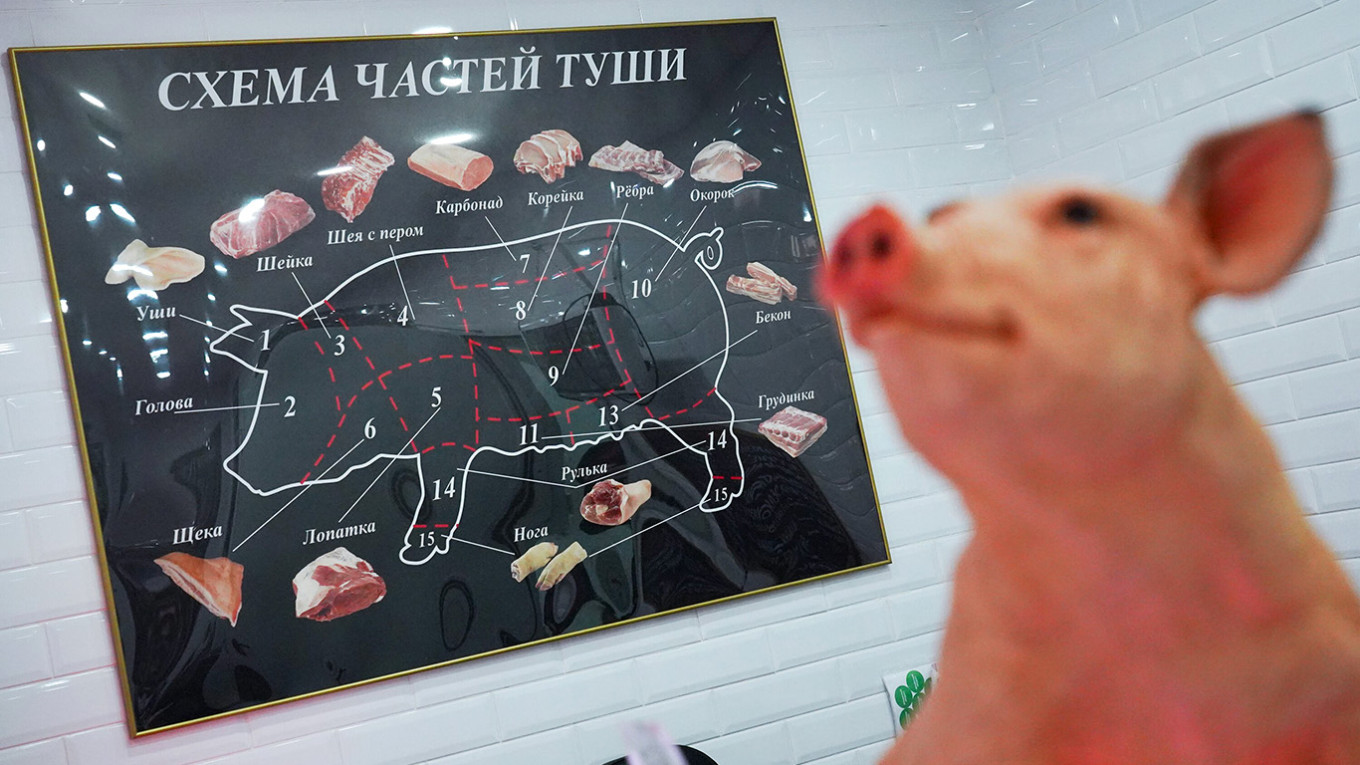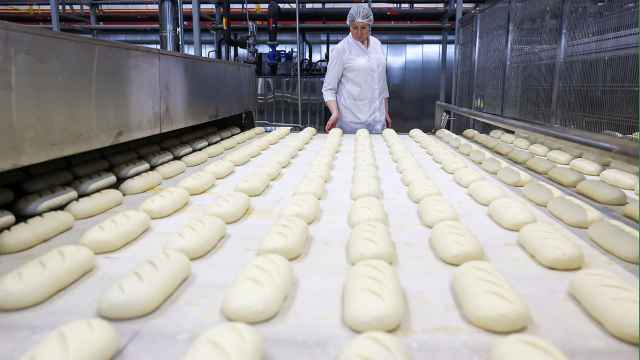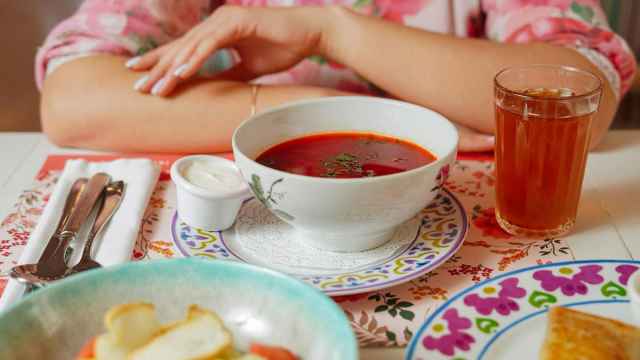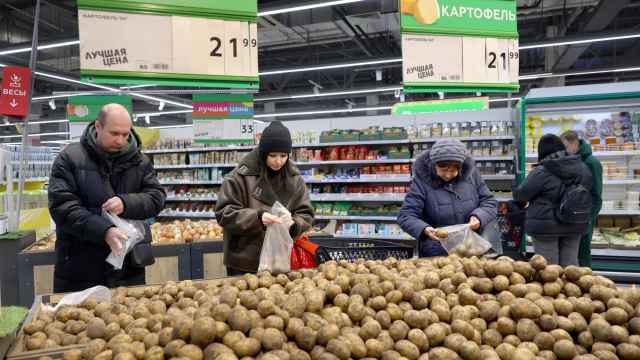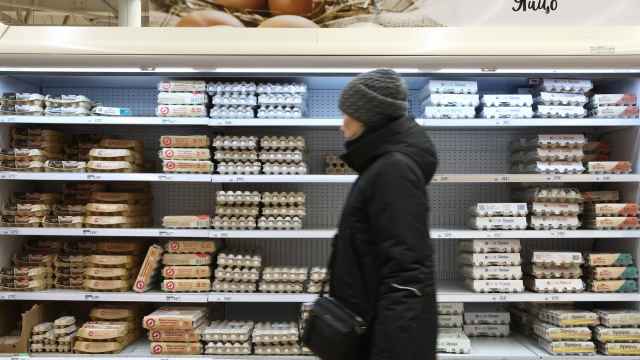Russians are paying increasingly higher prices for pork after a record surge in potato prices earlier this year, further intensifying pressure on household food budgets as inflationary trends ripple through the country’s agricultural sector.
Wholesale prices for pork have jumped across most cuts, driven by mounting production costs and broader economic instability, analysts at the market research firm NTech told the Kommersant business daily on Wednesday.
The average wholesale price for pork carcass reached 215 rubles per kilogram ($2.75) as of July 6, marking a 30% year-on-year increase.
Prices for specific cuts have also surged: pork belly is up 22% to 250 rubles/kg ($3.20), shoulder rose 21% to 285 rubles/kg ($3.64), ham by 19% to 292 rubles/kg ($3.73) and loin by 12% to 320 rubles/kg ($4.09). The only exception was pork neck, which saw a 5% decline to 445 rubles/kg ($5.69).
Konstantin Korneev, director of the consulting firm Rincon Management, attributed the spike in wholesale pork prices to rising inflation and production costs, particularly for pig feed.
Meanwhile, Dmitri Rylko of the Institute for Agricultural Market Studies pointed to higher expenses for labor, electricity, veterinary medications and vitamin-mineral premixes.
Retail pork prices are climbing in tandem, analysts from the agriculture market monitor AB-Center noted, with bone-in pork steadily increasing in price since July 2024. The pace of growth has accelerated since March, AB-Center said.
The pork price surge comes on the heels of a dramatic rise in potato prices earlier this year, when AB-Center reported a 285.5% year-on-year increase.
As of early April, producers were selling potatoes to retailers for 42.4 rubles per kilogram ($0.54), up from just 11.4 rubles ($0.15) the previous year.
As a result, Russian potatoes became nearly three times more expensive than the world average, which was $0.20 per kilogram at that time.
Russia’s Central Bank has kept interest rates high in an effort to curb inflation, but this has further strained the agricultural sector by increasing borrowing costs for producers and driving up transportation expenses, according to Miratorg, one of the country’s largest meat producers.
A Message from The Moscow Times:
Dear readers,
We are facing unprecedented challenges. Russia's Prosecutor General's Office has designated The Moscow Times as an "undesirable" organization, criminalizing our work and putting our staff at risk of prosecution. This follows our earlier unjust labeling as a "foreign agent."
These actions are direct attempts to silence independent journalism in Russia. The authorities claim our work "discredits the decisions of the Russian leadership." We see things differently: we strive to provide accurate, unbiased reporting on Russia.
We, the journalists of The Moscow Times, refuse to be silenced. But to continue our work, we need your help.
Your support, no matter how small, makes a world of difference. If you can, please support us monthly starting from just $2. It's quick to set up, and every contribution makes a significant impact.
By supporting The Moscow Times, you're defending open, independent journalism in the face of repression. Thank you for standing with us.
Remind me later.


